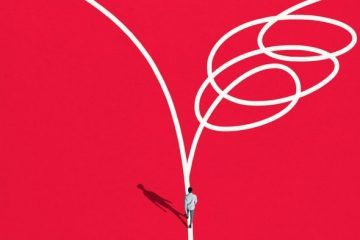Michele Solis in Scientific American:
 In a perfect world, we would learn from success and failure alike. Both hold instructive lessons and provide needed reality checks that may safeguard our decisions from bad information or biased advice. But, alas, our brain doesn’t work this way. Unlike an impartial outcome-weighing machine an engineer might design, it learns more from some experiences than others. A few of these biases may already sound familiar: A positivity bias causes us to weigh rewards more heavily than punishments. And a confirmation bias makes us take to heart outcomes that confirm what we thought was true to begin with but discount those that show we were wrong. A new study, however, peels away these biases to find a role for choice at their core. A bias related to the choices we make explains all the others, says Stefano Palminteri of the French National Institute for Health and Medical Research (INSERM), who conducted a study published in Nature Human Behaviour in August that examines this tendency. “In a sense we have been perfecting our understanding of this bias,” he says.
In a perfect world, we would learn from success and failure alike. Both hold instructive lessons and provide needed reality checks that may safeguard our decisions from bad information or biased advice. But, alas, our brain doesn’t work this way. Unlike an impartial outcome-weighing machine an engineer might design, it learns more from some experiences than others. A few of these biases may already sound familiar: A positivity bias causes us to weigh rewards more heavily than punishments. And a confirmation bias makes us take to heart outcomes that confirm what we thought was true to begin with but discount those that show we were wrong. A new study, however, peels away these biases to find a role for choice at their core. A bias related to the choices we make explains all the others, says Stefano Palminteri of the French National Institute for Health and Medical Research (INSERM), who conducted a study published in Nature Human Behaviour in August that examines this tendency. “In a sense we have been perfecting our understanding of this bias,” he says.
…Delusions can be a hallmark of psychosis, in which they may involve extreme beliefs about alien abduction or being a god. Milder delusionlike thinking also touches otherwise healthy people, such as a sports fan with a superstition about wearing a lucky shirt to ensure a team’s win. More harmfully, the current coronavirus pandemic has wrought some delusions of its own, such as one that holds that mask wearing causes sickness.
So a false belief remains fixed, and any outcomes that contradict it are not accepted by the brain. If choice is the point of reference that governs our learning style (with or without confirmation bias), then maybe something about choice or an inflated sense of control pushes people toward delusions. Perhaps individuals with delusions are choosing to have particular experiences to support a false belief and choosing to interpret information in a way that supports that belief.
More here.
